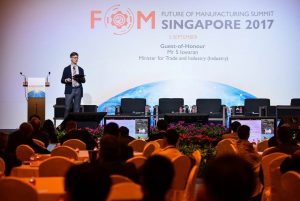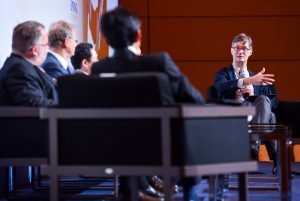Date: 16 November 2017
Time: 2pm to 5pm
Venue: Philosophy Meeting Room (AS3-05-23)
2pm to 3.30pm
“Holism in Action” by Robert Myers
Abstract:
Although Davidson always acknowledged that his causal theory of action faces a number of serious difficulties, he maintained throughout his career that they should be regarded as problems of detail, not as problems calling into question his basic idea that reasons for actions are causes of actions and that rationalizing explanations are causal explanations. I argue, first, that these difficulties are actually fatal to Davidson’s view as it is often interpreted and as he himself often presented it in his classic papers on philosophy of action, but, second, that, on a different interpretation, Davidson’s view fares better, and that this different interpretation is closer to his real meaning.
About the speaker:
Robert Myers is Professor of Philosophy at York University, Toronto. He received his PhD from the University of California, Berkeley, and taught for twelve years at Barnard College in New York City before joining the department of philosophy at York University in 2001. His research interests are in theoretical ethics, related issues in philosophy of action and epistemology, and political philosophy. He is the author of Self-Governance and Cooperation (Oxford 1999) and the co-author (with Claudine Verheggen) of Donald Davidson’s Triangulation Argument: A Philosophical Inquiry (Routledge 2016).
3.30pm to 5pm
“Davidson’s Treatment of Wittgenstein’s Rule-Following Paradox” by Claudine Verheggen
Abstract:
The aim of this paper is first to show that Wittgenstein and Davidson argue for semantic non-reductionism, the rejection of any account of meaning that does not invoke semantic notions, in similar ways, and that consequently they conceive of the use they both take to be essential to meaning in a similar way. Both think that a full account of meaning requires us to consider this use within a semantic context, so that we cannot say what speakers mean by their words, and what words mean, without saying what speakers use their words to mean, and we cannot answer the question what makes it possible for someone to have a language without thinking of her as already having one. However, whereas Wittgenstein makes only very general remarks about the kind of use that is essential to meaning, Davidson has much more to say about the topic and, as a result, provides a significantly richer and more constructive way to address the paradox about meaning and rule-following developed by Wittgenstein.
About the speaker:
Claudine Verheggen is Professor of Philosophy at York University, Toronto. She received a diploma in cinema from the Institut National Supérieur des Arts du Spectacle, Brussels, an MA in philosophy from the University of Chicago and a PhD in philosophy from the University of California, Berkeley. She taught for ten years at the City University of New York before joining the department of philosophy at York University in 2006.
Verheggen’s research interests are in the philosophy of language and related issues in philosophy of mind, metaphysics and epistemology (including normativity, objectivity, truth, and philosophical skepticism). She is the co-author (with Robert Myers) of Donald Davidson’s Triangulation Argument: A Philosophical Inquiry (Routledge 2016), and the editor of Wittgenstein and Davidson on Language, Thought, and Action (Cambridge 2017). Her current research includes a book project, entitled Minding the World, in which she addresses critiques of what she takes to be Wittgenstein and Davidson’s conception of the relation between thought and reality, and develops and defends the conception of objectivity that can be based upon it.
All are welcome
 You are cordially invited to the Classical Chinese and Philosophical Linguistics Workshop with Professor Christoph Harbsmeier organized by Associate Professor Loy Hui-Chieh on 12th and 13th February 2018 at the Wan Boo Sow Research Centre for Chinese Culture, NUS FASS AS8-05-49.
You are cordially invited to the Classical Chinese and Philosophical Linguistics Workshop with Professor Christoph Harbsmeier organized by Associate Professor Loy Hui-Chieh on 12th and 13th February 2018 at the Wan Boo Sow Research Centre for Chinese Culture, NUS FASS AS8-05-49.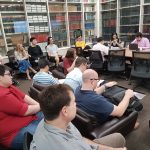
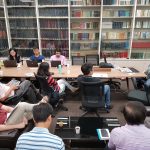
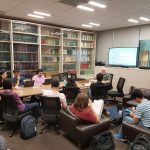




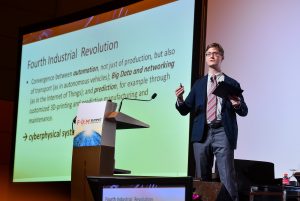 The NUS Philosophy Department was represented at the inaugural Future of Manufacturing Summit 2017, organized by A*STAR, with support from the Economic Development Board (EDB), and held last month at Sentosa Resorts World Convention Centre. A/P Axel Gelfert (NUS Philosophy) gave the closing lecture, titled ‘Four Industrial Revolutions and Counting: Beyond the Rhetoric of Innovation’, to an audience of 200 managers, entrepreneurs, and policymakers. The goal of the summit – which also featured Mr. S. Iswaran, Minister for Trade and Industry (Industry), as Guest of Honour – was to bring together global thought-leaders to discuss key topics related to technology trends and industry shifts that are shaping the future of manufacturing from a range of economic, societal and technological perspectives. A/P Gelfert’s lecture was followed by a roundtable that discussed enabling factors and societal implications of the future of manufacturing. Other speakers and panelists included Mr. Tan Choon Shian (Chief Executive of Workforce Singapore), Professor Siegfried Russwurm (former Chief Technology Officer of Siemens corporation), Mr. Low Ka Hoe (Chief Strategy Officer, ST Engineering), and Dr. Yves Rossier (Head of Digital Transformation, Nestlé corporation).
The NUS Philosophy Department was represented at the inaugural Future of Manufacturing Summit 2017, organized by A*STAR, with support from the Economic Development Board (EDB), and held last month at Sentosa Resorts World Convention Centre. A/P Axel Gelfert (NUS Philosophy) gave the closing lecture, titled ‘Four Industrial Revolutions and Counting: Beyond the Rhetoric of Innovation’, to an audience of 200 managers, entrepreneurs, and policymakers. The goal of the summit – which also featured Mr. S. Iswaran, Minister for Trade and Industry (Industry), as Guest of Honour – was to bring together global thought-leaders to discuss key topics related to technology trends and industry shifts that are shaping the future of manufacturing from a range of economic, societal and technological perspectives. A/P Gelfert’s lecture was followed by a roundtable that discussed enabling factors and societal implications of the future of manufacturing. Other speakers and panelists included Mr. Tan Choon Shian (Chief Executive of Workforce Singapore), Professor Siegfried Russwurm (former Chief Technology Officer of Siemens corporation), Mr. Low Ka Hoe (Chief Strategy Officer, ST Engineering), and Dr. Yves Rossier (Head of Digital Transformation, Nestlé corporation).